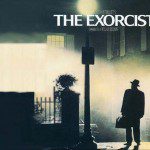“That quiet conversation was by far the most terrible thing that has ever happened to me in my life.”
G.K. Chesterton (1874-1936) was a celebrated British journalist, detective novelist, artist and Catholic apologist. He wrote over one hundred books, thousands of newspaper columns, innumerable poems, a several plays. He gleefully debated society’s intellectual luminaries such as George Bernard Shaw, H.G Wells, Clarence Darrow and Bertrand Russell. It is easy to estimate that he engaged in hundreds of thousands of conversations with countless individuals during his sixty-two years of life. And yet Chesterton considered a conversation with a fellow art school student “the most terrible thing that has ever happened to me in my life.”.
What happened?
It was a black, wintry night on the campus of the Slade School of Art in London. The chill resting on the school building’s stone steps was weakly countered by a gardener’s fire brilliantly emitting swarming red sparks. It was here that a young G.K. Chesterton found himself with a student he had gotten to know and whose company he found intriguing, yet at times unsettling. As Chesterton recalled,
“[He could] talk a foul triviality with his fellows, [yet could] also talk politics with a Socialist, or philosophy with a Catholic.”
“It was strange, perhaps, that he liked his dirty, drunken society; it was stranger still, perhaps, that he liked my society. For hours of the day he would talk with me about Milton or Gothic architecture; for hours of the night he would go where I have no wish to follow him, even in speculation.”
Chesterton was clearly impressed with his peer and would further describe him as a “gentleman” and a “sort of Super-Jockey”. But in spite of his intelligence, polish and facility with different topics and diverse people, there was something sinister about him. The conversation began when his friend asked Chesterton why he was “becoming orthodox” in his religious worldview. Fully considering this for the first time, Chesterton acknowledged that this was true and further answered,
“I am becoming orthodox because I have come, rightly or wrongly, after stretching my brain till it bursts, to the old belief that heresy is worse even than sin. An error is more menacing than a crime, for an error begets crimes…An Imperialist is worse than a pirate. For an Imperialist keeps a school for pirates…”
“I hate modern doubt because it is dangerous.”
His friend would delicately respond,
“You mean dangerous to morality. I expect you are right. But why do you care about morality?”
It was at this point that Chesterton perceived that something was terribly wrong. He tried to counter with a metaphor. Looking at the sparks flying from the fire, Chesterton replied,
“Give me those few red specks and I will deduce Christian morality. Once I thought like you, that one’s pleasure in a flying spark was a thing that could come and go with that spark. Once I thought that the delight was as free as the fire. Once I thought that red star we see was alone in space. But now I know that the red star is only on the apex of an invisible pyramid of virtues. That red fire is only the flower on a stalk of living habits, which you cannot see. Only because your mother made you say ‘Thank you’ for a bun are you now able to thank Nature or chaos for those red stars…The flame flowered out of virtues, and it will fade with virtues. Seduce a woman, and that spark will be less bright. Shed blood, and that spark will be less red. Be really bad, and they will be to you like the spots on a wall-paper.”
And his friend would rebut,
“But shall I not find in evil a life of its own?”
“Perhaps,” he said, in his tired, fair way. “Only what you call evil I call good.”
With this, Chesterton was nearly (& uncharacteristically) dumbstruck. As his friend would descend the steps and depart, a shaken Chesterton admitted,
“I felt as if I wanted the steps swept and cleaned.”
It was shortly thereafter that Chesterton ceased to call him friend and instead dubbed him The Diabolist. But what was it that disturbed Chesterton so deeply about The Diabolist? It hinges on a simple Truth. Sin is wicked, but when recognized as sin, man can repent, seek and receive redemption. But if the worldview fails to recognize sin for what it is, or worse, celebrates the sin as some form of grotesque virtue, repentance is not sought and redemption is lost. Even more concerning, this worldview does not limit itself to a solitary sin which hurts the perpetrator alone. Instead, it eagerly embraces and encourages a multitude of other sins which visit their wicked results upon others. Thus, the Diabolist proudly trods upon the road to damnation and woe betide those who should find themselves in his path.
Years later, after reviewing a poem by the infamous occultist Aleister Crowley, Chesterton refused Crowley’s challenge for a debate. Chesterton was no shrinking violet when it came to vigorous exchanges with heavyweight intellects. But he drew the line when it came to engaging utter and flagrant depravity. While despairing of these men’s souls, he feared giving them public platform when there was virtually no chance of their conversion. Sometimes the darkest evil, it would seem, is better left alone in its blackness.
In the end, G.K. Chesterton recognized in The Diabolist the fearsome eternal ramifications and destructive temporal consequences of an intelligent, “reasonable”, winsome person who had chosen to live a life of inverted morality. His was a clever, unmoving “enlightenment” that led to the suicide of the soul. It was chilling. It was unnerving.
And it was the most terrible thing.












